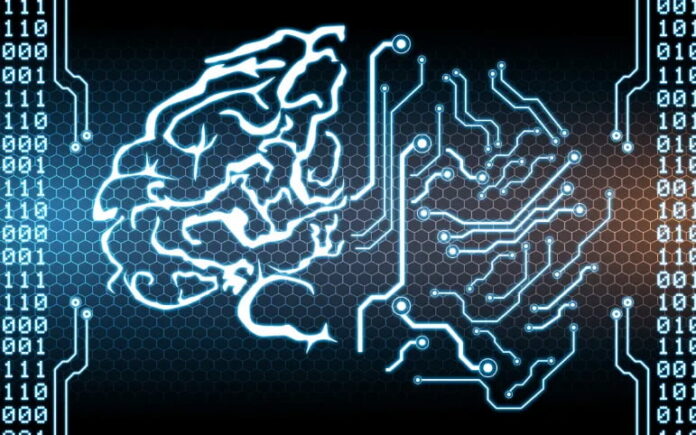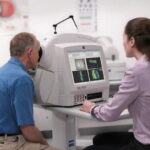Digital therapeutics are clinical strategies supported by software programs that are evidence-based and intended to prevent, control, or treat a specific disease or condition. As opposed to health and wellness products, digital therapy follows a research and development path more closely related to drug development. Digital therapeutics (DTx) goods have the potential to significantly impact how healthcare is distributed and used globally, even while this new type of medicine is still being adopted into the healthcare system.
The market worth of digital therapeutics in 2021 was USD 3.02 billion, and it will be worth USD 35.78 billion by 2030, growing at a 31.4% CAGR during the forecast period.
According to a recent Ipsos survey, 50% of UK citizens often use health technology either recently or currently. Comparatively, only 7% of participants agreed for a digital therapeutic tool (DTx).
Every year, one in every four persons in England suffers from mental health. In any given week in England, one in every six people experiences a common mental health disorder (such as anxiety or depression).
In any given week in England, 8 in 100 people suffer from mixed anxiety and depression, 6 in 100 people suffers from a generalized anxiety disorder, 4 in 100 people suffers from post-traumatic stress disorder, 3 in 100 suffers from depression, 2 in 100 has a phobia, followed by obsessive-compulsive disorder, panic disorder, etc.
Reports suggest that in England, Only about one in three persons suffering from a common mental health issue receive treatment in the form of talking therapies, medication, or both. Psychiatric medicine is the most commonly used treatment.
In recent years, the number of people reporting mental health concerns has increased. Between 1993 and 2014, the number of people with common mental health problems increased by 20% in both men and women.
The proportion of people experiencing severe mental health symptoms in any given week increased from 7% in 1993 to more than 9% in 2014.
In any given week, 26% of young women between the ages of 16 and 24 suffers from common mental health issue.
In any given year, over 40% of persons in England with co-occurring issues like homelessness, substance abuse, and engagement with the criminal justice system also suffer from mental health issues.
DTx medicines have shown considerable improvements in the care of patients with various complicated disorders, particularly mental health.
Between January 2010 and December 2019, around 500 DTx clinical trials were conducted, including approximately 180 interventional clinical trials.
More than 40% of these trials were in mental health fields such as psychiatry, neurology, addiction, and sleep medicine.
DTx and the Treatment of Mental Health
Several developments for managing mental health and substance misuse issues were among the initial developments in the DTx field. These have concentrated on several known treatment needs, such as technology to inform and direct patients, support needs in behavior modification and monitoring, provide access to motivational support, and deliver real-time assessments of cognitive function.
They can also greatly increase the amount of data available from individual patients and entire patient groups, allowing for quicker and more effective changes to treatment regimens and approaches.
DTx offers potential advantages in other areas, such as improved privacy, lower costs, and the capacity for patients to better control the speed of their therapy and track their progress.
The market worth of behavioral health software market in 2021 was USD 2.44 billion and it will be worth USD 7.61 billion by 2030 growing at a 13.39% CAGR during the forecast period.
Read Also
- Optimizing CT Protocols: The Hidden Key to Efficiency and Cost Savings in RadiologyIntroduction: Why CT Protocol Optimization Matters Computed Tomography (CT) is a cornerstone of modern diagnostic imaging, providing critical information across nearly every medical specialty. However, maximizing the value of CT — both clinically and financially — requires more than just advanced hardware. The real secret lies in the optimization of CT protocols. When CT protocols… Read more: Optimizing CT Protocols: The Hidden Key to Efficiency and Cost Savings in Radiology
- The Role of Carbide Burs in Modern Dental ProceduresAs a result of this procedures need to be well coordinated and to this end, precision tools are used by dental practitioners. Among the most essential tools in a dentist’s arsenal are carbide burs, which have revolutionized various aspects of dental work. Today’s dentistry cannot work without these tools as they are both strong, sharp,… Read more: The Role of Carbide Burs in Modern Dental Procedures
- Detection of Diabetic Retinopathy: The AI AdvantageDiabetic retinopathy (DR) is a leading cause of blindness among working-age adults, affecting millions worldwide. The prevalence of DR is alarmingly high, affecting an estimated 34.6 million people globally. In the United States alone, it is estimated that 7.7 million adults have some form of diabetic retinopathy. How Does Diabetes Affect the Eye? Most of… Read more: Detection of Diabetic Retinopathy: The AI Advantage
- Advances in Digital Health: Transforming Modern HealthcareThe healthcare landscape is undergoing a seismic shift with the advent of digital health technologies. These innovations are not just modern conveniences; they are transformative tools that bridge gaps in accessibility, improve patient outcomes, and empower individuals to take charge of their health. From wearable devices to telehealth and artificial intelligence, digital health is creating… Read more: Advances in Digital Health: Transforming Modern Healthcare
- The Latest Advancements in Urology ProceduresUrology, the branch of medicine concerning the urinary system and male reproductive organs, has seen remarkable advancements in recent years. Technological innovations have led to more precise, less invasive, and increasingly successful procedures that promise better outcomes for patients. From state-of-the-art robotics to personalized medicine approaches, the field of urology is evolving at a rapid… Read more: The Latest Advancements in Urology Procedures
Substance Abuse
In treating substance use disorders (SUDs), research has resulted in DTx choices delivered using computer-based and mobile technologies that are intended to supplement or replace a wide range of conventional medical or psychological treatment modalities.
ReSET for treating non-opioid use disorders and reSET-O for treating opioid use disorders were two of the first therapies to receive approval. Both items are interactive-based therapies for substance addiction and abuse that SUD patients can utilize at home in combination with supervised therapy sessions.
ReSET’s approval is an illustration of the strict criteria in clinical research that are applied to many DTx products. After a 12-week clinical trial including 399 participants in 10 outpatient addiction treatment centers, the FDA approved reSET.
The research discovered that pairing the reSET app with in-person counseling increased treatment adherence and abstinence rates. By the end of the research, 40.3% of the patients using the reSET app were abstaining, compared to 17.6% in the control group who did not use the app.
According to clinical data supporting reSET-O, 82% of patients receiving buprenorphine and reSET-O remained in treatment at 12 weeks as opposed to 68% of patients receiving buprenorphine alone.
Another example is the digital therapy Vorvida, which is used to treat problematic drinking. Based on unique behaviors and patterns, Vorvida is a web-based software tool that speaks directly to patients about ways to help manage drinking.
Researchers showed that participants in the intervention group using Vorvida significantly decreased their daily alcohol use for 3 and 6 months, with significant effect sizes, in a randomized controlled trial enrolling 608 individuals with problematic alcohol intake. In July 2020, Vorvida was introduced in the US to treat problematic alcohol abuse.
Sleep Disorders
Well-suited possible uses of DTx are approaches to treating insomnia that can include cognitive, behavioral, and educational components.
Digital approaches to cognitive behavioral therapy have been demonstrated in certain studies to offer advantages compared to in-person treatment while improving symptoms like anxiety, sadness, fatigue, and health-related quality of life.
In November 2020, Somryst, a digital remedy to reduce the signs and symptoms of chronic insomnia, was launched.
The program offers a variety of lessons and challenges during treatment over several weeks, including algorithm-driven sleep restriction to educate the brain and body to better sleep. Real-time information on patient development is also made available to clinicians through the program.
Sleepio is a DTx product that is clinically supported and available as an OTC treatment option.
Sleepio has been proven in research investigating the use of cognitive-behavioral therapy therapies to enhance sleep and mental health in those with insomnia and clinically significant depressive symptoms in the United Kingdom.
Sleepio was reported to relieve insomnia by 76% and depressed symptoms by 48% in clinical tests compared to the control group. The researchers showed these benefits to be sustained for 22 to 24 weeks following the intervention.
Attention-Deficit/Hyperactivity Disorders
Various pharmacological and nonpharmacological therapies are used as part of the standard of care to treat attention deficit hyperactivity disorder (ADHD); however, many of these have drawbacks and high long-term risk profiles.
In these treatment protocols, DTx can present therapeutic modalities that support enhancements in cognitive abilities, such as attention, while posing fewer side effects and abuse risks.
The FDA authorized EndeavorRxTM (AKL-T01) as an ADHD medication for children in June 2020. Based on data from five clinical studies involving more than 600 kids, EndeavorRx was granted because the drug improved objective attention measurements in children with ADHD.
After one month of treatment, about 50% of parents noticed a clinically significant improvement in their child’s daily impairments; this number rose to 68% after the second month of treatment.
Monarch eTNS, a cell phone-sized electronic gadget, electronically stimulates the brain’s trigeminal nerve via a patch on the forehead before bedtime. The system concentrates on brain regions related to attention, epilepsy, and mood problems.
Children who utilized the system at bedtime for four weeks had considerably lower impulsivity, hyperactivity, and inattention as judged by clinician-administered ADHD rating scales, per a study by the University of California, Los Angeles.
Conclusion
The range and pace of research in creating DTx products to address unmet needs in mental health have risen significantly in recent years and will grow exponentially in the next years. Clinically proven DTx solutions frequently fulfill regulatory standards for safety and efficacy, which can boost patient confidence, healthcare provider uptake, and reimbursement paths. Furthermore, the high speed of innovation in digital technology can support the development of medicines in a wide range of applications.






